This post may contain affiliate links. We may receive a small commission, at no cost to you, if you make a purchase. Read Disclosure.
Embarking on a safari in Africa is high on many people’s travel bucket list. Ever since we’re children, we are exposed to stories and cartoons of wild animals roaming freely through the plains of Africa, from hungry lions to majestic giraffes and wise old elephants.
If you’re about to make your Discovery Channel viewing a reality, then you will want to come make sure you go in knowing the important things to know before going on a safari in Africa.
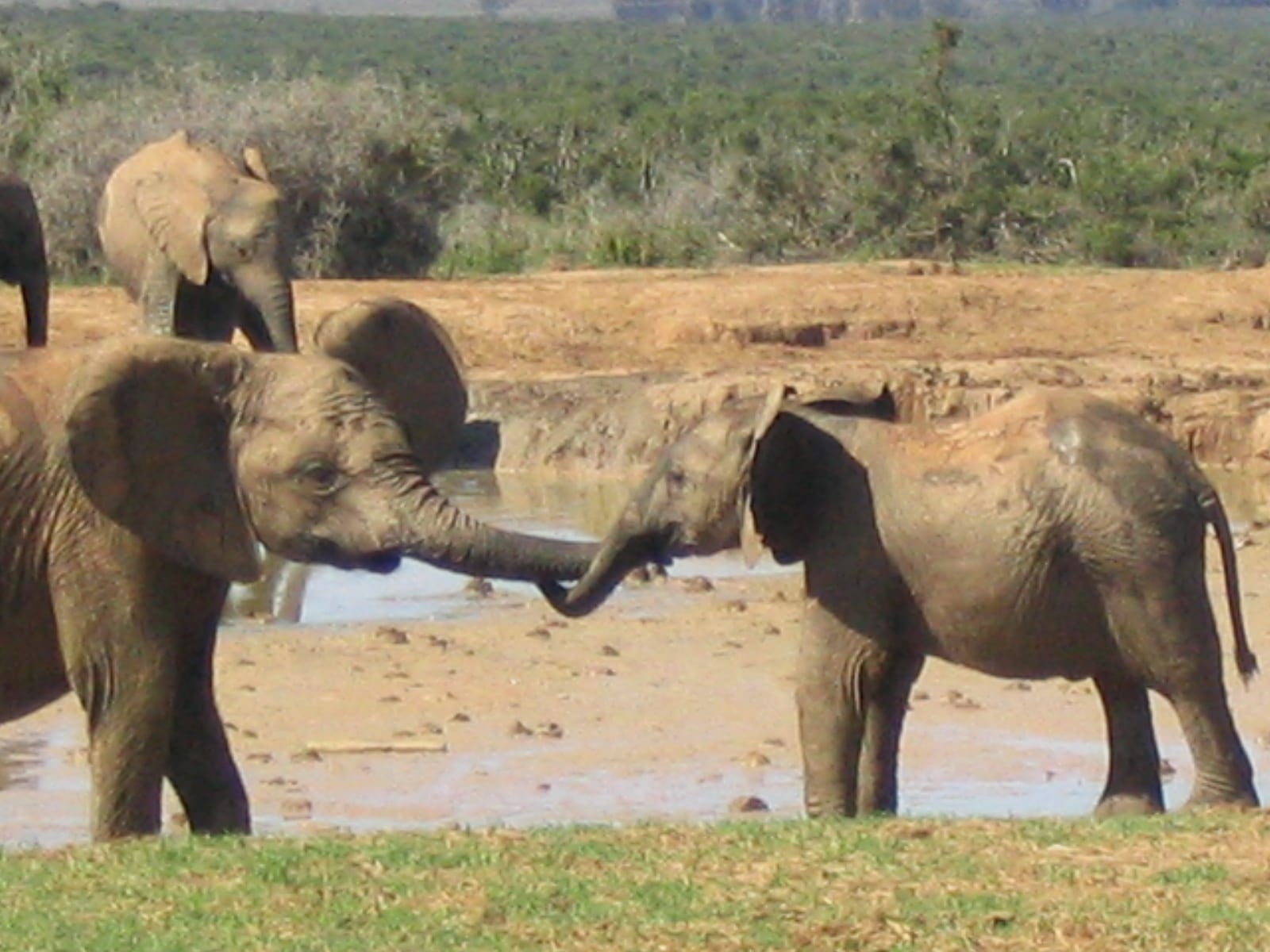
We’ve been really lucky to have experienced several safaris in Africa, from the Masai Mara in Kenya, the iconic Kruger National Park in South Africa, and even the vast expanse of the Serengeti in Kenya.
There is nothing more wide-eye inducing than watching as a cheetah, in a 70mph predator run, chase and bring down a small springbok, or watching lions eat their freshly caught breakfast, or see baby zebras learn to walk.
But not everyone is lucky on a safari when it comes to wildlife viewing, especially if you plan to self drive, so we’ve put together this list of tips and important things to know before a safari.
Things To Know Before Going On A Safari
1. Plan Your Safari Destination & Dates in Advance
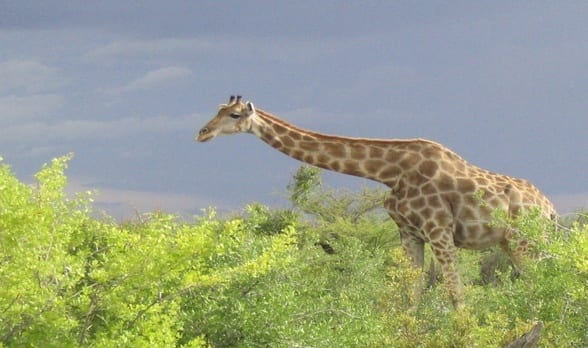
Before any game drive, careful planning is essential for making the most of the safari experience. You need to choose your destination wisely, and you also need to choose the right time of year.
Typically, the best time of year for wildlife viewing in Africa is late June to October, which is Africa’s winter season.
This time of year the wildlife are on the move as the weather is not too hot. If you have opted for a safari in Kenya or Tanzania, then time your safari for July through November, when the Great Migration takes place.
This is when hundreds of thousands of wildebeest migrate thousands of miles across the savannah, which attracts predators such as lions and cheetah.
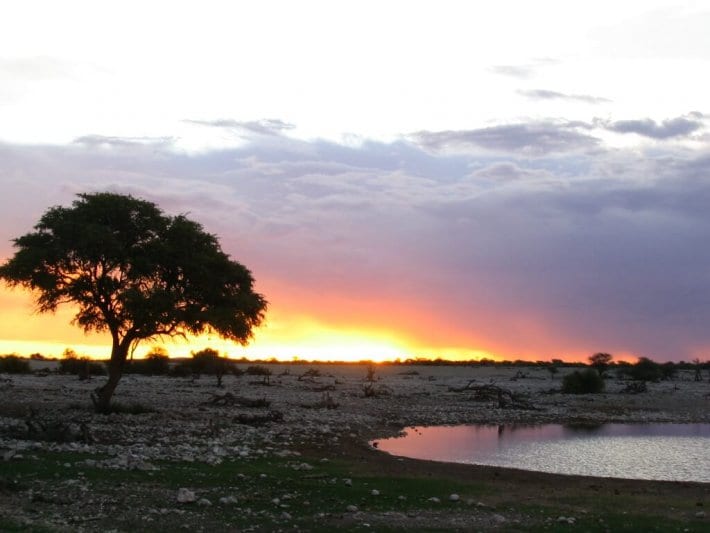
In the dry season, the grass is short making it easier to spot wildlife, but it does also mean the choice of drinking water sources for the animals will be fewer.
This may increase your chances of watching them socialise at flood lit waterholes opposite your campsite, with an ice cold beer.
We learned this safari tip the hard way.
We visited Etosha NP in Namibia during the wet season. Etosha is notorious for brilliant water hole animal viewing, except we didn’t see much at all. The campsite water holes that usually see an abundance of wildlife were empty due to the abundance of water around the park.
2. Make A List Of Animals You Want To See
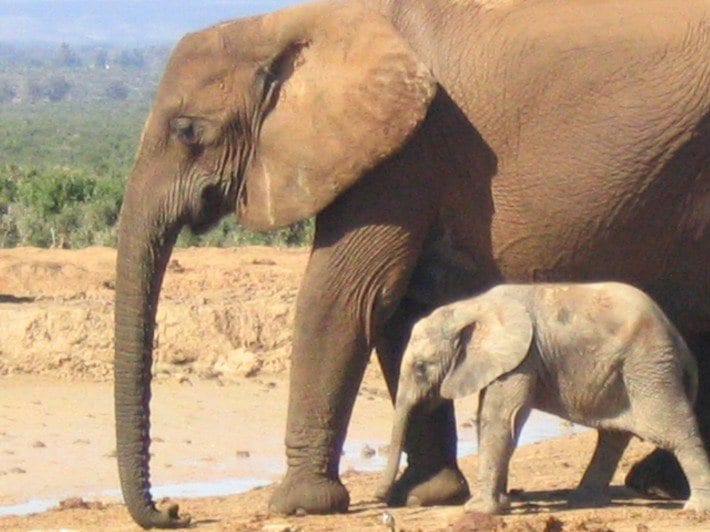
You then need to decide what wild animals you want to see, as some animals are only found in certain parks.
For example, if you really want to see elephants, then the best place to go would be Addo Elephant Park in South Africa.
Typically, private game reserves have the best wildlife viewing as they are smaller, but you do need to consider they are smaller in land mass which might not be as eco-friendly as a national park.
If it’s gorillas you want to see, then plan to visit Uganda or Rwanda, or if you want to see a place teeming with everything, Kruger National Park or Masai Mara in Kenya are great all-round game reserves.
Going to many different parks all over the continent will wipe out your budget. The best way to decide which game serve or national park to visit is to consider where the animals you most want to see are location.
3. Know The Best Time for Animal Viewing
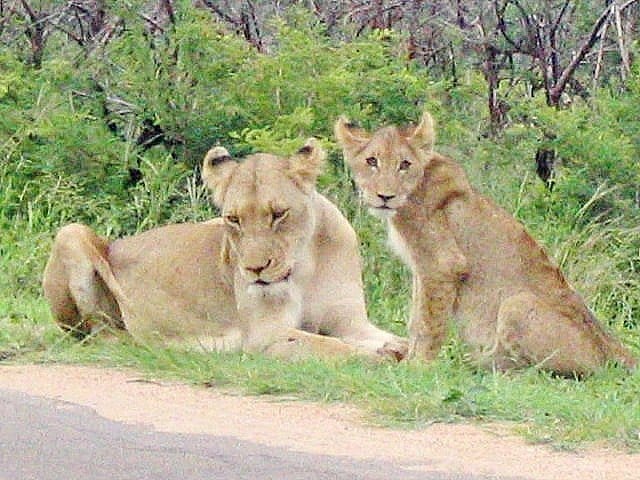
Animals are most active at dusk and dawn. It is very hot in Africa, so during the day the animals are usually hibernating in the shade.
Be sure to do the same thing yourself. If your excitement is too hard to contain and you go out during the day, the only result will be that you chew up your fuel budget, and an eventual visit to the chiropractor for neck strain.
Get up early to catch the animals at play, rest during the day, and then go out again just before sundown.
You have a much better chance of seeing them up close and personal on the road.
There were several times we turned a corner to find a lioness resting on the warm tar. It was a magnificent sight to see her suddenly jump into launch mode, and stare us down through our front windscreen.
TIP: Lions like to sleep on the road at night to soak up the day’s heat trapped in the tar. If you’re up early enough you
4. Don’t Get Fixated On Seeing ALL The Big 5
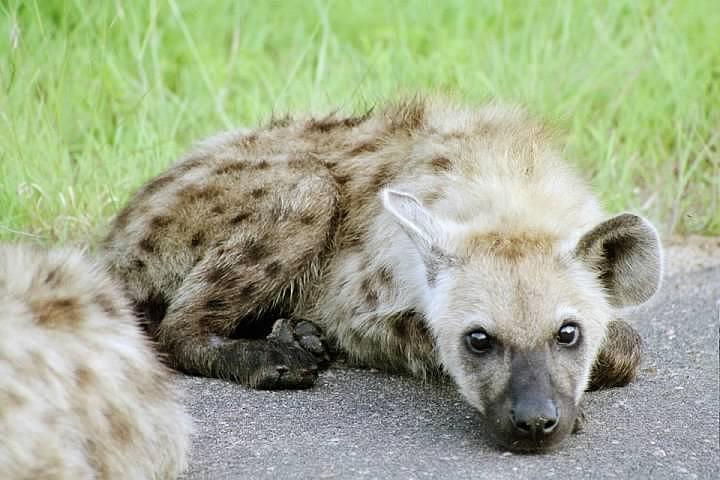
The excitement of seeing the Big 5 is very enticing i.e. rhino, buffalo, leopard, lion, and elephant.
Why are these animals called the Big 5? It has nothing to do with size, these animals were the most prized trophies of hunters years ago.
Please don’t get fixated on the Big 5 and think this is all that matters. Remember travel is not about checking things off your list.
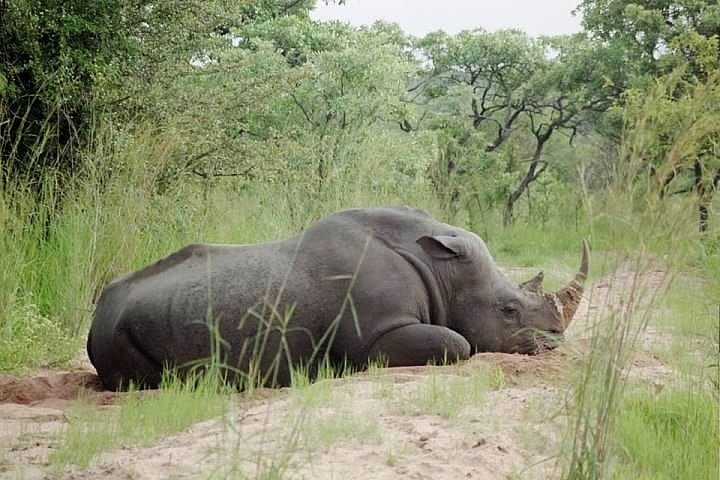
There are so many different animals for you to discover and learn from, and each is valuable in its own right.
Spend time appreciating them all. I used to even love watching the dung beetles. They were fascinating and I learned so much about them in the process.
Dung beetles are also dying out, so if you see one, you’re more lucky than seeing a rhino. Wild dogs are also super rare, though they don’t get the same fan-fare as lions and cheetahs.
Sadly, black rhinos and white rhinos are dying out and near extinction, so the chances of seeing these animals are rare. Don’t forget these are wild animals and you can’t control where they go – so don’t beat yourself up if you spend 5 days in a game reserve and don’t see a rhino.
5. Get A Good Camera
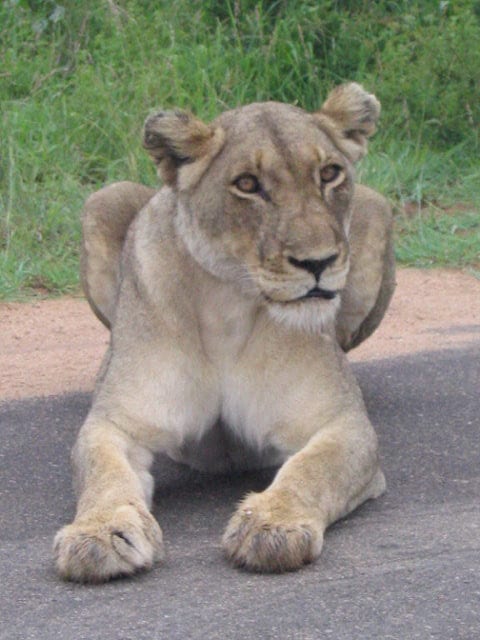
Do yourself a favour, spend the money to buy some good zoom lenses. We opted for a a 600mm zoom lens.
Animals are scared of you, they won’t come close for a portrait, and you won’t sneak up closer to them (I hope).
You’ve spent all the money, time, and energy to put yourself in a place of contact with these wild animals, you want to have something to take away from it and keep with you for memories and reflection.
6. Take A Guided Night Drive
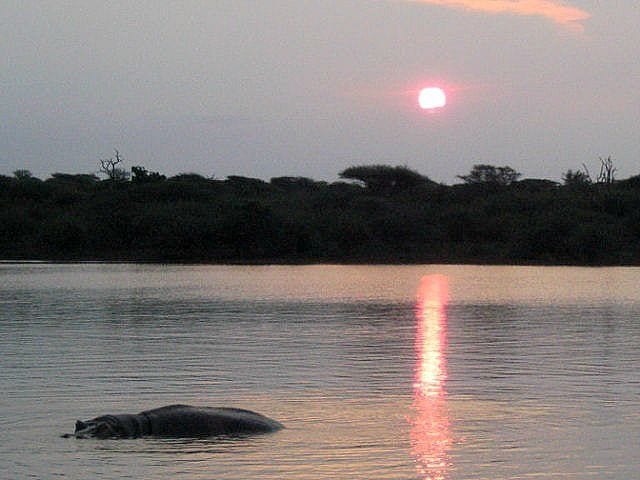
You might think that a night drive wouldn’t be much fun, after all, how much can you see in the dark? You’d be surprised!
Once night falls you can jump in an open topped vehicle, with a huge spot light, and a guide to tell you more about what you see as you drive around the park, hearing the sounds of nighttime Africa, and seeing only the red eyes of creatures in the dark.
This is the time when leopards usually hunt, and you may see some other noctural animals like porcupines and jackals.
Note that you can only go on night drives organized at your safari lodge. All gates to accommodations close by nightfall, and so you better be locked safe and sound inside them.
7. Take a Guided Walking Safari

Just do it! Getting on the ground with these magnificent beasts in their territory will get your heart pumping.
We didn’t have as much action as anticipated, but we did get close to rhinos (downwind) and we smelled the fear of the lions running away from us in the distance.
If you take a tour please make sure they are eco-friendly and protect the animals and their habitats from these dangerous human encounters.
Alternatively, a horse ride is a relaxing and pleasurable way to see the stunning scenery with friendly herbivores by our side. We went horse riding through the valleys in Swaziland amongst warthogs, zebra and deer.
8. Know That Monkeys Can Be “Cheeky”
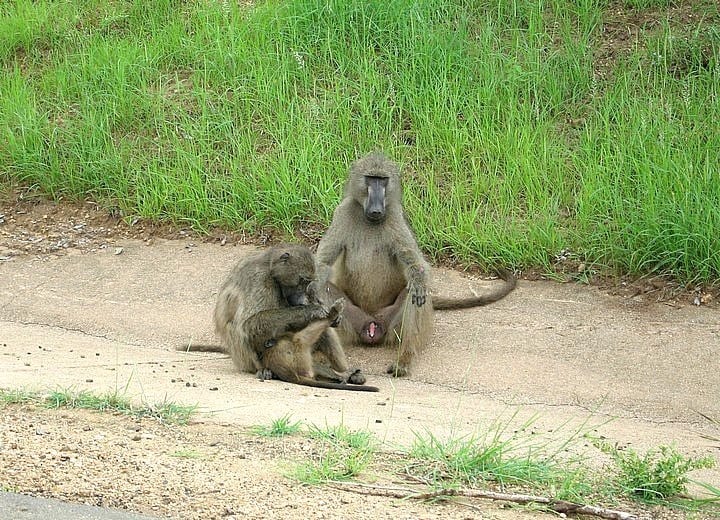
Monkeys in all shapes and forms are hilarious. Sit and watch them and be highly entertained.
We saw them arguing, b***slapping one another, picking each others nits, jumping over our car trying to take it hostage, and yes doing it like they do on discovery channel- over and over again!
It’s not uncommon for monkeys to get curious with safari goers and may even jump on your vehicle and try to swipe your camera.
If you encounter monkeys, keep all food and water locked away in your bags and keep an eye on your belongings.
9. Be Prepared For A Lot Of Hiking On A Gorilla Trek
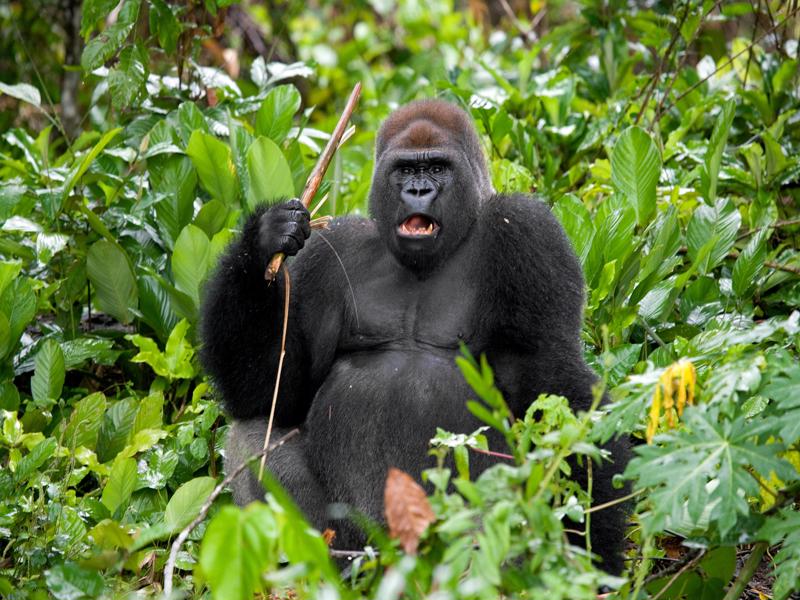
If your plan is not to go on a safari, but to go on one of the iconic gorilla treks, go in prepared to do a lot of hiking.
These gorilla treks can be anywhere from 30 minutes in the jungle to 8 hours. It really depends on where the gorillas are and how quickly they move.
10. Pack Light
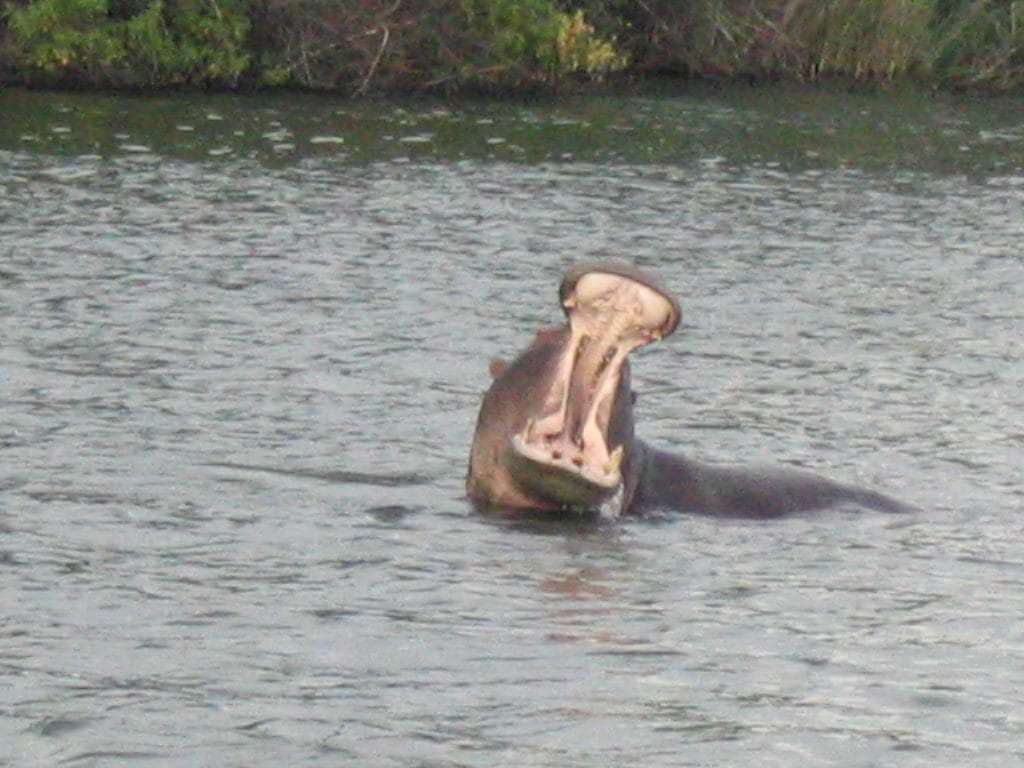
You really don’t need to pack much when you’re going on a safari, since you spend all day in a vehicle being driven around the wilderness.
Bring snacks and plenty of water, but make sure you bring a bag that closes so nothing can fall out.
If you are going out for sunrise to sunset, you will need to pack a picnic for breakfast and lunch (sometimes it’s provided as part of a tour).
Some game reserves have a restaurant (Kruger NP has a really nice one) but not all of them have these facilities.
11. Be Quiet at Water Sources
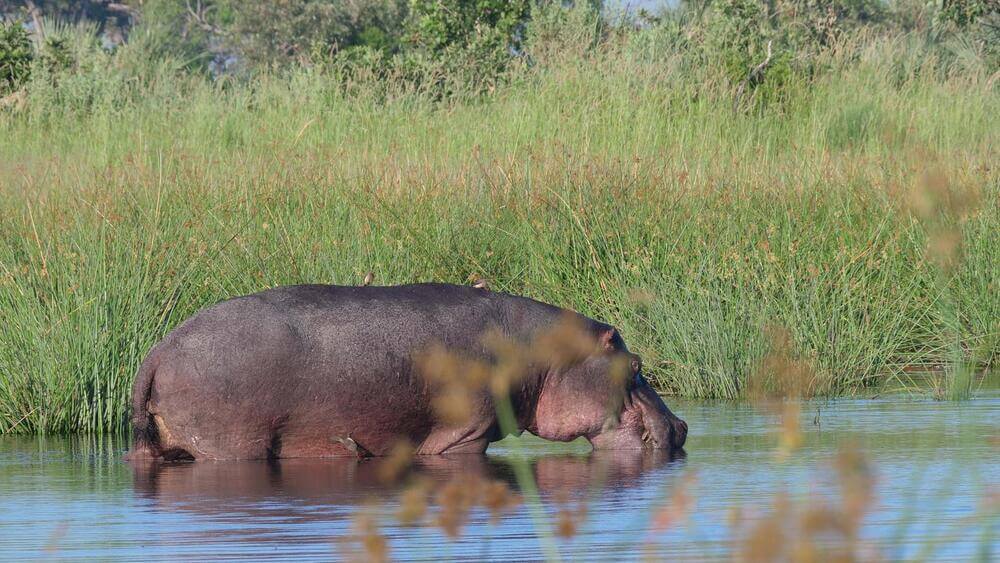
There are usually hides next to a water source where you can safely exit your vehicle and walk into.
These hides are for viewing hippos and crocodiles, and they sit right by the water so you get an amazing view.
If you have small kids, please, please, ask them to be quiet. The hippos will duck under the water if they start screaming. I know it’s exciting, but remember you are in wildlife’s home and these animals are easily spooked.
12. Be Prepared For Dust
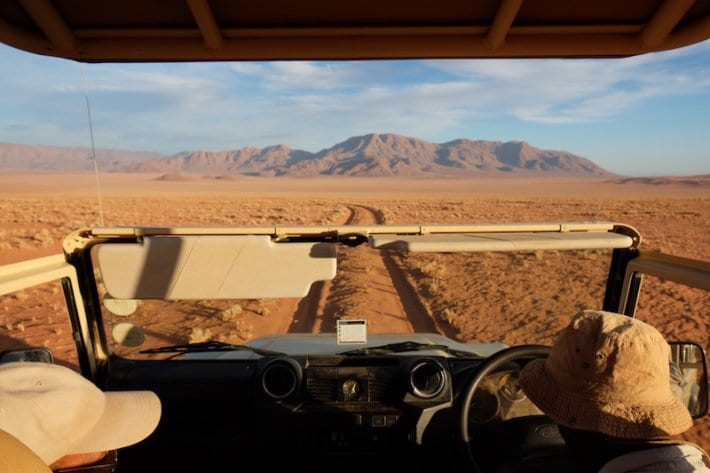
The savannah is a dry, barren landscape, and it has a lot of dust. These safari vehicles are usually open top, or at least, don’t have windows, so dust gets everywhere.
It will be all over your clothes, all over your skin, in your hair and in your eyes.
I recommend you wear sunglasses to protect your eyes, and bring a scarf or something to wear over your mouth if it becomes unbareable.
13. Take Note Of These Safety Tips for Game Drives
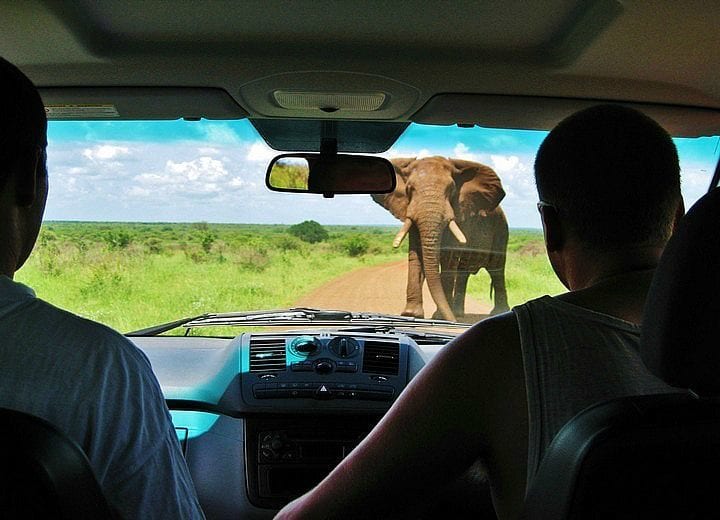
Never, ever, ever, and I mean ever, get out of your car. UNLESS in a safe designated area, or with an armed ranger present.
This is the wild, don’t mess with it.
I know this sounds a bit like a ‘No Sh*t, Sherlock’ kind of statement, but you will be surprised at how many people get eaten by lions trying to get that perfect shot.
Keep a safe distance when you encounter a wild animal and when in your vehicle keep your windows rolled up
If you get stuck between a herd of elephants (this happened to someone we know) turn off your engine, keep your windows up, and wait patiently for them to move on before driving past.
Elephants feel vibrations through their feet, and the car engine could spook them or cause them to feel threatened.
Zip your tent up at night. Nothing beats hearing the roar of a lion in the middle of the night, but you don’t want to invite it in for dinner.
We rented a car for most of the safaris we visited. Check Discover Cars for best prices and availability.
Group Tours of Africa
If you’re considering joining a group tour for Africa, consider our long-term partner Globus family of brands. We have a discount in the blue box below.
GLOBUS DISCOUNT JUST FOR YOU!
We’ve secured an exclusive yTravel discount: Save $100 per person on select 2024 Globus and Avalon Waterway Vacations. Use the code: YTRAVEL when booking online at the Globus, Cosmos, and Avalon Waterways websites, by calling Globus and Avalon Waterways directly, or booking with a preferred Travel Advisor. Terms & Conditions.
Final Thoughts
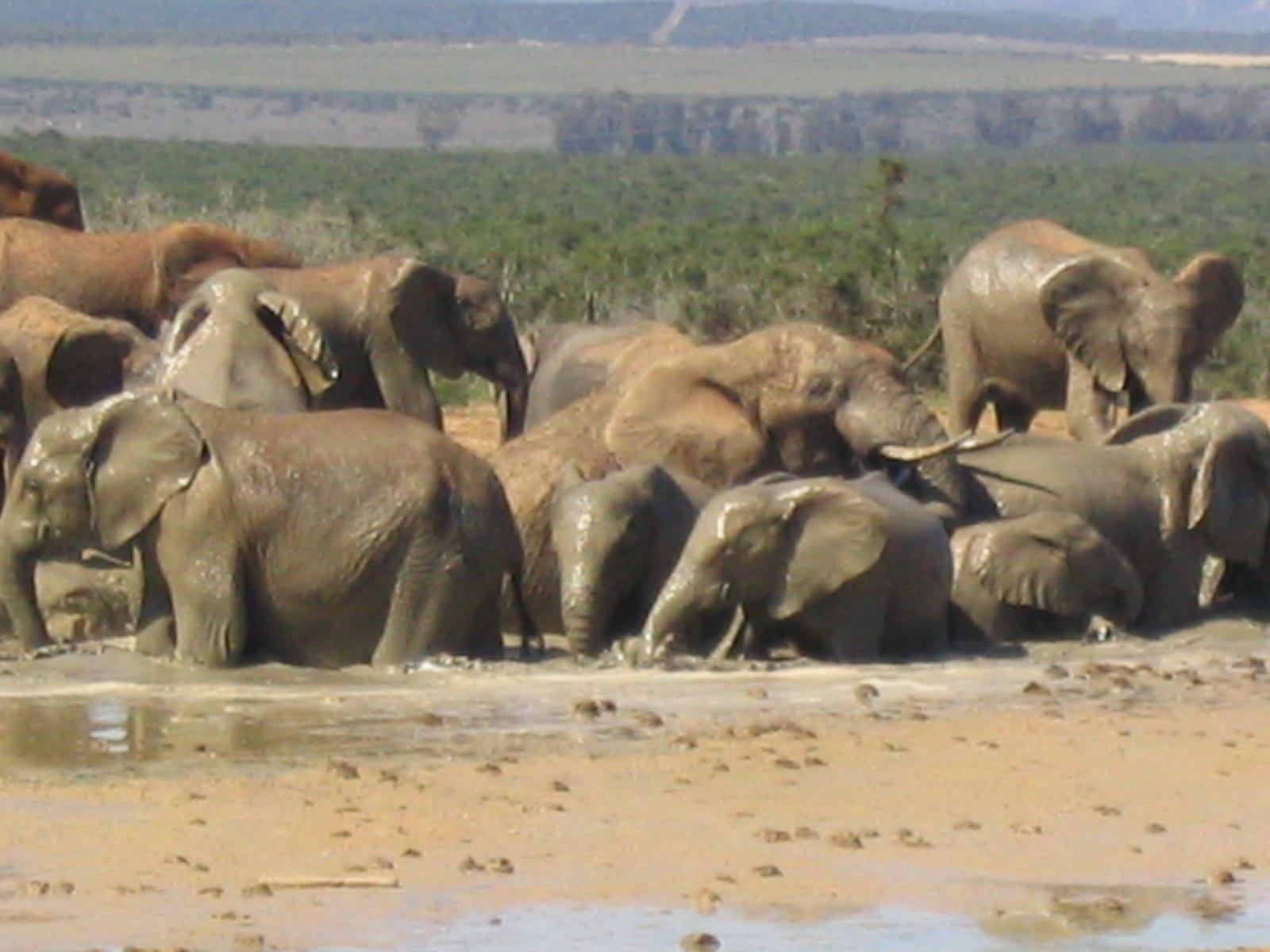
As you prepare to leave for Africa, you may have come to realize Africa is a long way from home, it’s rough travel, and safari’s are expensive.
Good for you for deciding to do some research, and for making a plan. This is the first step to ensuring you see the best African wildlife encounters and make the most of the experience.
We hope these African safari tips has helped you plan ahead, avoid making the usual safari mistakes, and gave you the insight to ensure that your dream African adventure brings you the most amazing wild animal encounters you can brag about for years to come.
More Africa Travel Tips
Need more inspiration for your trip to Africa? Then these other guides might be helpful to you…
[ad_2]
Source link
